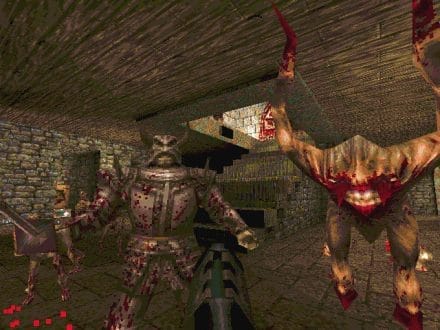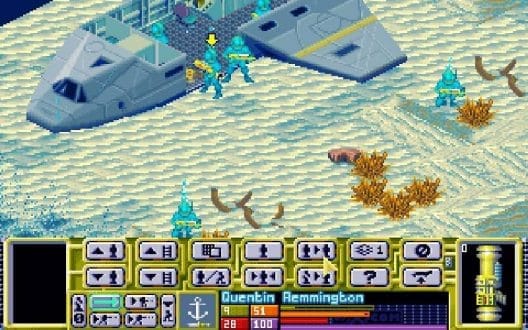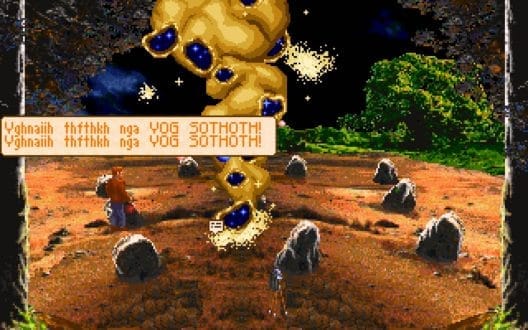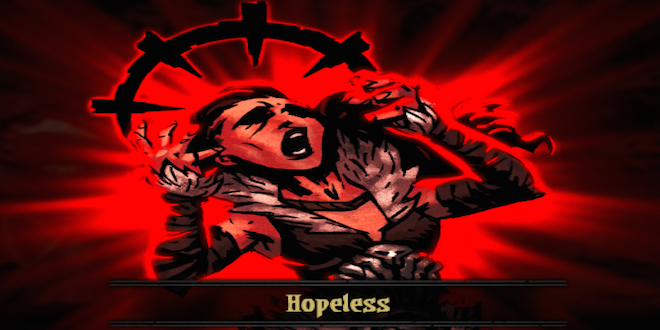To say game developers have an interest in the works of Howard Phillips Lovecraft would be a bit of an understatement. From indie darlings like Darkest Dungeon to AAA hits like Bloodborne, it seems you can't take two steps in darker games without coming across a writhing mass of tentacles or a dark cult summoning horrors from beyond the stars. But there's a worrying trend I've noticed in these games, and it's gotten too big for me to continue to ignore it.
Lovecraft games just don't really get Lovecraft.
Usually, we think of Lovecraftian games as titles that get Lovecraft's aesthetic. Shady villages ran by cultists, giant squid-faced humanoids, and themes of insanity are usually found within these sorts of games. We've fought Cthulhu in more games than I can possibly count; everything from the top-down spell-casting shooter Magicka to the tactical RPG aptly titled Call of Cthulhu: The Wasted Lands lets you line up to take a piece out of Cthulhu and company, but herein lies the first problem.
The main thing you'll find in a Lovecraft story, besides terror, is hopelessness. Humanity is insignificant in the grand scheme of things and have no way to truly defeat the creatures preying on them. We can fight—and just ask the pulpy remains of Cthulhu's head post-steamboat ramming—but we can't actually beat them for good. They're too big, too smart, too powerful, and we cannot possibly stop them.
So when the final act of the actual Call of Cthulhu game involves the main character and the US Navy laying siege to the underwater city of Y'ha-nthiel with a tommy gun, or the game praised as being closest to Lovecraft's text features legions of horrors being cut down by a hunter with a canesword, you might be a little bit off point.

It's not really the fault of the developers, or a knock against the games themselves—many of which listed here are superb. Rather, Lovecraft's mythos is, by nature, unadaptable into a visual medium. The Old Ones do not obey the laws of our universe, they aren't bound by how Earth works. They're often described—or rather not described—as incomprehensible beings, something too advanced for the human mind to possibly understand. Cthulhu isn't Dracula or Jason Voorhees; he's not the sort of physical presence we associate with villains.
So this poses a bit of an awkward problem. Amnesia: The Dark Descent, while not a Lovecraftian game, had the right idea of making players look away from the monsters unless they wish to succumb to insanity. Still, even with the mechanic in play, you're just dealing with varying types of maimed humanoids. Sure, you could try to up the design, maybe make the creatures in question more nightmarish and inhuman, but the problem still stands. There is nothing incomprehensible about a 3D model with some blood textures.
So making a proper Lovecraft game can be hard, especially when the villains of the story cannot be fought, stopped, or even seen without mucking with what makes the source material tick. Games such as the 1993 point n' click Shadow of the Comet have come close, making nearly any encounter with anything otherworldly end in death, but it has a second problem that makes everything so much harder to pull off.
It has a happy ending.

Games usually have some sort of positive conclusion, or at least a bittersweet one. What you did in the game, good or bad, has changed the world. The player's a somebody, the player's actions mean something. In the world of Lovecraft, this couldn't be further from the truth. The protagonists usually end up dead, mentally unhinged, or worse, and ninety-nine percent of the time the end of existence is on its way—and nothing can stop it. Nothing could've. In fact, the closest thing you'll get to a "happy" conclusion in any of Lovecraft's stories is the Old One being temporarily stalled or the protagonist choosing to live in ignorance of the impending armageddon. While Bloodborne's endings are on the right track here, the game can still feel a tad too empowering to really nail the hopelessness.
But along with the despair comes a fundamental lack of control that Lovecraft's works love to hammer home. In a world where some of the most popular games on the market are sprawling sandboxes with multiple endings and morality systems, a subgenre focused on how pointless choice really is wouldn't really be at home. Even gaming at large focuses on controlling an avatar in the digital worlds, and it's hard to make a player feel truly out of control without removing their agency—the very thing that makes a game, well, a game.
These basic pillars of Lovecraftian horror are incompatible with games as we know them. After all, it's hard to make a traditional game about an impossible challenge that we cannot fully understand and failing miserably in the process and still manage to keep it entertaining. Because when you try to combine conventional gaming and Lovecraft, you'll get a title like Quake, where every eldritch beast can simply be blasted apart with a rocket launcher, or a Call of Cthulhu: Dark Corners of the Earth that includes a bombastic turret sequence where you shoot at Father Dagon while he claws at your ship.
So is there a way to truly adapt Lovecraft? I think so. While I had issues with the aforementioned Shadow of the Comet and Bloodborne, they're certainly a step in the right direction. The closer you get to a truly hopeless battle against an alien force, the closer you get to what makes the original stories so effective. And while so many of what we consider to be givens in video games—such as win states, killable enemies, and clear goals—may be directly at odds with the genre, that doesn't mean they're absolutely necessary.
Ironically, it seems that the further you stray from what's commonly seen from a video game, the closer you get to a truly Lovecraftian experience. The text adventure Anchorhead doesn't even feature any graphics besides text, completely sidestepping the issue of making fundamentally incomprehensible monsters visible in the first place, and therefore making the unimaginable monsters all the more intimidating. Additionally, adventure games in general don't usually have any sort of combat system, making it even easier to convey to the player that you really don't want to be messing around with these sorts of creatures.
So while it's highly unlikely we'll get a faithful Lovecraftian shooter or platformer anytime soon, not all hope is lost. For just beyond the reaches of normalcy lurks uncharted and emerging new genres, from the forgotten text adventures to all sorts of new experimental venues. For like the Old Ones themselves, it seems that the deeper you dive into the depths of gaming, the closer you get to true horror.
And who knows what awaits.
Have a tip, or want to point out something we missed? Leave a Comment or e-mail us at tips@techraptor.net













